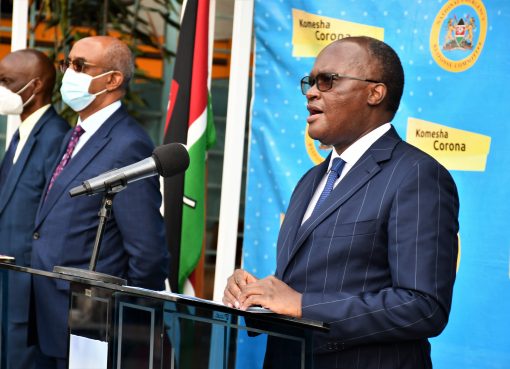The Africa Gender and Media Initiative Trust Programme Manager, Gladys Kiio has commended the tremendous strides made in the implementation of the national school health policy which was launched in Kilifi in June 2019.
Speaking on Saturday in Mombasa during the formation of the school health technical working group for the county, Ms Kiio said they have embarked on tours to follow up and establish the technical working groups to strengthen implementation of the school health policy to benefit learners by eliminating related challenges as envisioned.
“The County school health coordinators, ministry of education in collaboration with ministry of health are in discussion on establishing technical working groups to oversee the implementation of school health in the coastal region and the country at large,” said Kiio
The function had brought together stakeholders from the ministry of health, education, civil society and other partners in Mombasa County.
The technical group made terms of reference which will serve as guiding principles to outline who the technical working group will comprise, the number of members and frequency of meetings and the different duties to be undertaken by each.
“We are hopeful we will be able to support the technical working group in the coming years for continuity of maintaining and bettering school health,” affirmed Kiio
She noted that school health comprise of all health related matters from mental health, menstrual health management, gender based violence, sanitation among others which are outlined in the policy.
If implemented, it will help improve health especially adolescent and the youth since school health policy covers a child from nursery school to university.
She observed that the school health policy is a step in the right direction in addressing health challenges affecting the youth in the country.
She added that the policy touches in detail issues of menstrual health management, HIV and AIDS, teen pregnancies and non communicable diseases among the youth.
“As an organisation we chose to develop the sustainable health policy which once implemented, it will effectively address the current challenges on time.
By school health we are talking of stopping and addressing issues of early pregnancies for girls as young as nine years old in class three and others in secondary schools or college,” said Kiio.
The Programme Manager (PM) said all stakeholders, including youth, parents and teachers will be sensitized since school health policy targets learners and the school community.
She stated the policy will also link the children with health facilities to accelerate the promise for healthy learners in build up to next week’s celebration of 25 years since the 1994 International Conference on Population and Development (ICPD) of Cairo.
The PM said the anniversary will look into what has changed for the girl child born in 1994 and now 25 years old looking at the policy environment for realising sexual and reproductive health is improved by organisations and the government.
School health policy has come to fulfill the promises by eliminating FGM, early child marriages, realising reproductive health rights.
Kiio called on the two ministries of health and education to cooperate as witnessed to put up school health programmes in areas of nutrition, infrastructure among others as enshrined in the policy.
She emphasized that awareness creation is key among the stakeholders including children, teachers, parents to come up with projects that can be carried out.
For instance on nutrition the policy emphasises on how food should be prepared, which food and the quantity.
The Gender and Media Institute deals with advocating for women and girls rights on reproductive health in the African continent, and looks at challenges around reproductive health, early pregnancy cases among girls, school dropouts due to lack of sanitary wares for girls among others.
By Joseph Kamolo



